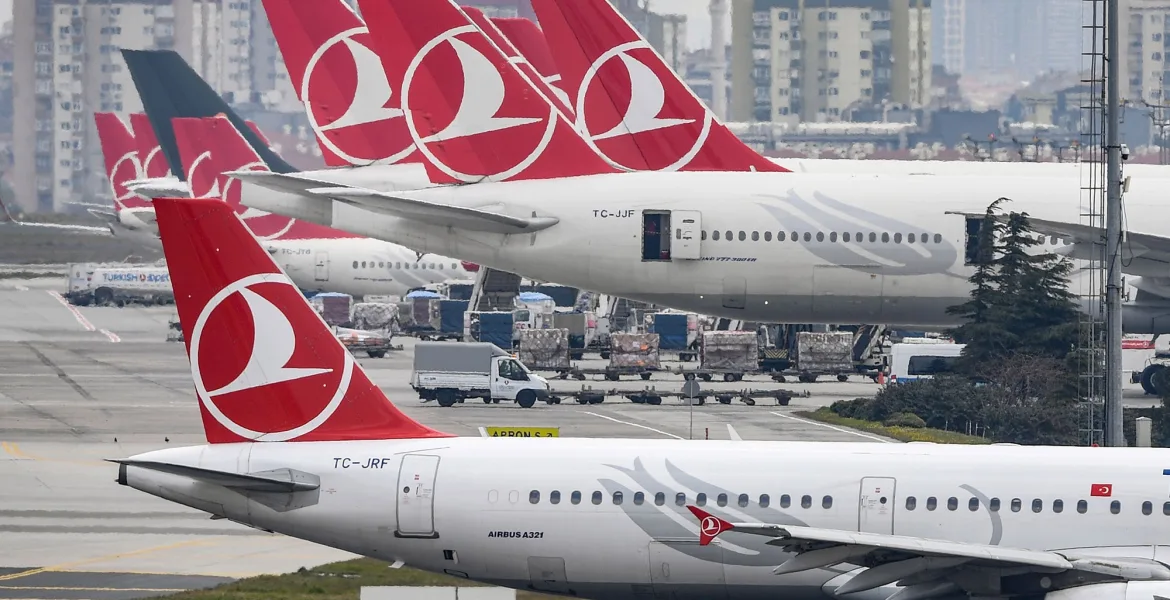Flights between Australia and Europe are expected to drop after the government granted Turkish Airlines more flights following major criticism of protecting Qantas profits when a bid by Qatar Airways to add more weekly flights to Australia earlier this year was rejected.
"This additional demand will stimulate competition and encourage more competitive air fares on international routes," a spokeswoman for the transport minister said.
Transport Minister Catherine King approved the proposal that will initially see weekly flights between Turkey and Australia increase from seven to 21, then 28 in 2024 and 35 in 2025.
Ms King said the Turkish Airlines decision was "routine", with Shadow Transport Minister Bridget McKenzie calling it "preferential treatment".
The flights will operate from Brisbane, Melbourne, Perth and Sydney airports, as well as a yet-to-be-built airport in Western Sydney.
The government also adjusted flight capacity for Canada, Chile, France, Hong Kong, Papua New Guinea Solomon Islands and Vietnam this month.
International airfares may finally fall
The increased competition will bring airfares down and open new destinations for Australian travellers, Gui Lohmann from the Griffith Institute for Tourism said.
"Any airline that is increasing capacity in Australia is in many ways, good news", Professor Lohmann said.
"It gives us confidence that competition will be in place and airfares will also be lower."
Unlike some of the other international airlines flying Australians around the world, Turkish Airlines positions itself as a lower cost option rather than a premium carrier, Professor Lohmann said.
"Because they bring capacity, they will bring a significant level of competition to make sure that the other carriers are keeping an eye on the airfares that they put forward."
The Turkish carrier also brings another option for Australian travellers who are members of Star Alliance, the largest of the world's three global airline alliances.
Some other Star Alliance members include Air Canada, Air China, Air New Zealand, Singapore Airlines and Lufthansa.
Qantas, on the other hand, is part of the OneWorld alliance, which has 15 members, including British Airways, Cathay Pacific, Qatar Airways and American Airlines.
One reason why airfares have remained high is that many airlines are still building their way back to their pre-pandemic capacity, Professor Lohmann said.
An imbalance in supply and demand since COVID-19 travel restrictions were lifted has contributed to the problem, he said.
"It takes significantly more time to restart the industry than to convince passengers to start flying again", he said.
"There's a big mismatch between the availability of aircraft and seats and that pent up demand that we saw after the borders were opened."
High inflation across the board and the cost of fuel rising globally due to the war in Ukraine also play a part in expensive tickets, Professor Lohmann said.
More destinations expected
It is not yet known what destinations the additional flights will take off to, but Turkish Airlines flies to more countries than any other airline in the world — more than 120, according to its website.
"Their connectivity is actually quite impressive, so the ability for them to take passengers all over the world is significant", Professor Lohmann said.
How cost-of-living pressures and high airfares are affecting Australians' holiday plans
Amid rising inflation and interest rates and stubbornly high prices for flights, the number of Australian residents travelling overseas has yet to return to pre-pandemic levels. But some countries are getting more Australian visitors than others.
Turkey is keen to make Istanbul a transit point for global connections to build its own tourism, Professor Lohmann said, and the country's geographical position makes it particularly suitable as a transit point between Australia and Europe.
"More competition gives more opportunities in terms of choices of destinations but particularly in the market between Europe and Australia, which is a significant one," Professor Lohmann said.
The carrier was also granted "fifth freedom rights", which allows it to fly between two countries where neither is its home base.
According to Professor Lohmann, fifth freedom rights are "very common" in Australasia, especially for cross-Tasman flights.
Under the rights, a third-country carrier may pick up and drop off passengers in New Zealand, for example, before or after flying to Australia.
"This is a way to actually give an advantage to airlines that want to maximise certain routes and create further competition," Professor Lohmann said.
"It's a huge benefit for Australians and Kiwis."
Air travel experience for Australians 'simply not good enough'
While plane tickets come at a steep price these days, it unfortunately doesn't mean the experience is any better.
In a recent survey by consumer advocacy group CHOICE, two out of five respondents said they had experienced a cancellation or delay in the last 12 months.
Of those whose flights were delayed, more than half were not given a reason.
A whopping 85 per cent were not provided meal vouchers or accommodation as compensation.
Consumers still face a "number of difficulties" when flying, Bea Sherwood, senior policy and campaigns advisor at CHOICE said in a statement.
"The fact that people continue to experience such significant difficulties with air travel is simply not good enough", she said.
Ms Sherwood echoed Professor Lohmann's predictions that Turkish Airlines could help bring more alternatives and cheaper prices to Australian travellers.
"Overall this is good news for consumers. More flights in the market means more options, more destinations and hopefully cheaper options across the board", she told ABC News.
READ MORE: AEGEAN flights up to 95% full – The top destinations for Christmas and New Year.


